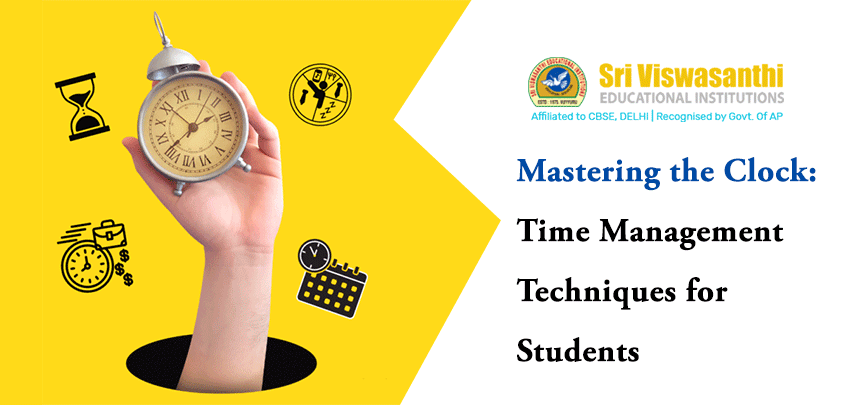

Time is a precious resource, especially for students who are often juggling a multitude of academic commitments. Learning to manage time effectively is a skill that can greatly enhance a student's productivity and overall well-being.
In this blog post, we'll explore crucial time management techniques that students can employ to strike a balance between their academic responsibilities and personal life.
Identify Your Priorities
Start by identifying your most important academic and personal priorities. What are your short-term and long-term goals? Knowing what matters most will guide your time management efforts.
SMART Goals
Create SMART (Specific, Measurable, Achievable, Relevant, Time-bound) goals for your academic and personal pursuits. SMART goals provide clarity and structure to your aspirations.
Use a Planner or Digital Calendar
Invest in a planner or use digital calendar apps to create a master schedule. Include classes, study sessions, assignments, extracurricular activities, and personal commitments. A visual schedule helps you see where your time goes.
Block Out Study Time
Allocate specific blocks of time for studying and homework. Treat these study sessions as appointments and stick to them as closely as possible. Consistency is key to effective time management.
Use the Eisenhower Matrix
The Eisenhower Matrix categorizes tasks into four quadrants: Urgent and Important, Not Urgent but Important, Urgent but Not Important, and Neither Urgent nor Important. Focus on tasks in the "Important" category to maximize your productivity.
Chunking
Break down larger tasks or projects into smaller, more manageable steps. This approach makes complex assignments less overwhelming and allows you to tackle them systematically.
Set Milestones
Assign deadlines or milestones to each step. This provides a sense of progress and helps you stay on track. Celebrate your achievements along the way.
Time Blocking
Time blocking involves dedicating specific blocks of time to specific tasks or types of work. For example, you might allocate one block for reading, another for writing, and another for research. This method minimizes multitasking and improves focus.
Use the Pomodoro Technique
The Pomodoro Technique breaks work into intervals, typically 25 minutes each, followed by a short break. After completing four intervals, take a more extended break. This method boosts concentration and prevents burnout.
Identify Distractions
Identify common distractions in your study environment, such as social media, notifications, or noisy surroundings. Awareness is the first step in managing distractions.
Create a Distraction-Free Zone
Designate a study space that is free from distractions. Turn off your phone or use apps that block distracting websites during study sessions.
Prioritize Commitments
Recognize that you can't do everything. Prioritize your commitments based on your goals and values. Politely decline additional tasks or responsibilities that don't align with your priorities.
Set Boundaries
Establish boundaries for your personal and study time. Communicate your boundaries to friends and family so they understand when you need dedicated study time.
Scheduled Breaks
Incorporate short breaks into your study sessions to recharge. Stretch, walk around, or do a quick breathing exercise. These breaks can enhance productivity.
Adequate Sleep
Ensure you get enough sleep each night. Quality rest is essential for cognitive function, memory consolidation, and overall well-being.
Regular Review
Periodically review your time management strategies. Are they working effectively? Are you achieving your goals? Adjust your schedule and techniques as needed.
Learn from Mistakes
Don't be discouraged by occasional setbacks. Mistakes are opportunities to learn and refine your time management skills.
Effective time management is a valuable skill that can significantly impact a student's academic performance and personal well-being.
By setting clear goals, creating a master schedule, prioritizing tasks, breaking them into manageable steps, practicing time blocking, limiting distractions, learning to say no, taking breaks, and regularly reflecting on your strategies, you can master the clock and achieve success.